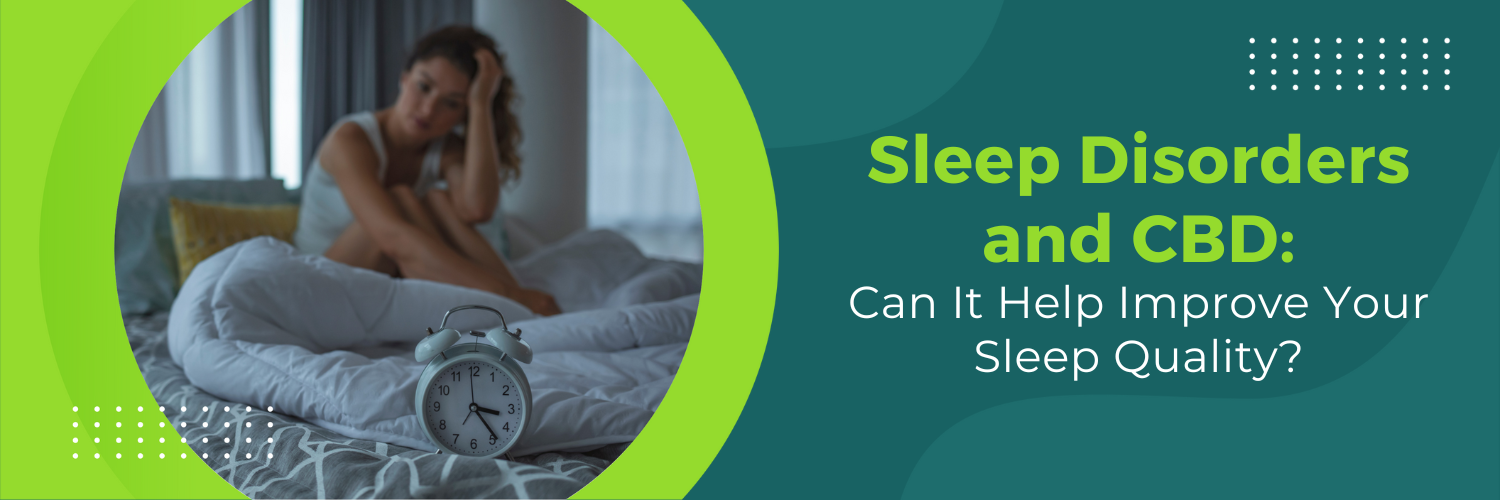Sleep Disorders
Sleep disorders encompass a range of conditions that disrupt normal sleep patterns. Insomnia, characterized by difficulty falling asleep or staying asleep, affects a significant portion of the population. Sleep apnea involves repeated pauses in breathing during sleep, leading to frequent awakenings and oxygen deprivation. Restless leg syndrome causes uncomfortable sensations in the legs, triggering an urge to move and interfering with sleep. These disorders can have a profound impact on overall health and well-being.
The prevalence of sleep disorders is a significant concern, with millions of individuals affected worldwide. Sleep deprivation resulting from these disorders can contribute to various health issues, including cardiovascular problems, impaired immune function, and mental health disorders. Moreover, individuals with sleep disorders often experience symptoms such as excessive daytime sleepiness, irritability, and difficulty concentrating, which can adversely affect their daily lives.
The Potential Benefits of CBD for Sleep Disorders
CBD, short for cannabidiol, is a naturally occurring compound found in the cannabis plant. It is one of over a hundred cannabinoids identified in cannabis. Unlike THC, which is known for its psychoactive effects, CBD does not produce a “high” and has gained attention for its potential therapeutic properties.
CBD is extracted from hemp, a variety of cannabis with low THC content. It can be found in various forms, including oils, capsules, edibles, topicals, and more. These products differ in terms of their onset of action and duration, providing individuals with options that suit their preferences and needs.
Scientific research on the effects of CBD on sleep disorders is still in its early stages. However, preliminary studies have shown promising results. CBD appears to have anxiolytic (anti-anxiety), sedative, and sleep-regulating properties, which may contribute to improved sleep quality.
Studies have suggested that CBD can reduce anxiety, a common contributor to sleep disorders. By interacting with receptors in the brain involved in anxiety regulation, CBD may help alleviate anxious thoughts and promote a calmer state conducive to sleep. Additionally, CBD may influence the sleep-wake cycle, aiding in the regulation of circadian rhythms and promoting more consistent sleep patterns.
Anecdotal evidence and personal testimonials from individuals who have incorporated CBD into their sleep routines are also worth considering. Many users report experiencing improved sleep quality, decreased sleep latency (time taken to fall asleep), and reduced awakenings during the night after using CBD.
Here is a list of how CBD may affect sleep:
- Anxiety Reduction: CBD has been shown to have anxiolytic (anti-anxiety) properties, which may help reduce anxiety levels that can interfere with sleep.
- Relaxation Promotion: CBD may promote relaxation by interacting with receptors in the brain and influencing the release of neurotransmitters associated with stress and relaxation, potentially aiding in sleep initiation.
- Sleep-Wake Cycle Regulation: CBD has been found to interact with receptors involved in the sleep-wake cycle, potentially helping to regulate circadian rhythms and promote more consistent sleep patterns.
- Sedative Effects: Some research suggests that CBD may have sedative properties, leading to feelings of drowsiness and facilitating sleep.
- Pain and Discomfort Relief: CBD has been studied for its potential analgesic (pain-relieving) properties. By alleviating pain and discomfort, CBD may contribute to improved sleep quality.
- Reduced REM Sleep Disruption: REM sleep is a stage of sleep associated with vivid dreams. CBD may help reduce REM sleep disruption, leading to more uninterrupted and restful sleep.
- Anti-Inflammatory Effects: CBD’s anti-inflammatory properties may help alleviate conditions that contribute to sleep disturbances, such as pain and inflammation-related sleep disorders.
- Improved Sleep Continuity: CBD has shown potential in reducing sleep fragmentation, characterized by frequent awakenings during the night, allowing for longer periods of uninterrupted sleep.
- Nighttime Wakefulness Reduction: CBD may help reduce nighttime wakefulness, making it easier to fall back asleep after waking up during the night.
- Overall Relaxation and Well-being: CBD’s effects on relaxation and overall well-being may contribute to a more peaceful and restful sleep experience.
Choosing the Right CBD Product for Sleep
When choosing a CBD product for sleep, consider the following factors:
- CBD Source and Quality: Look for CBD products derived from high-quality hemp plants that are organically grown and free from pesticides and other contaminants. Third-party lab testing can provide transparency and assurance of the product’s quality and purity.
- CBD Spectrum: CBD products can be categorized as full-spectrum, broad-spectrum, or CBD isolate. Full-spectrum CBD contains all the naturally occurring compounds found in the hemp plant, including other cannabinoids and terpenes, which may have synergistic effects. Broad-spectrum CBD contains multiple cannabinoids but no THC, while CBD isolate is pure CBD. Consider which spectrum aligns with your preferences and needs.
- Dosage: Determine the appropriate CBD dosage for your sleep needs. Start with a low dosage and gradually increase it until you achieve the desired effects. It is advisable to consult with a healthcare professional to determine the right dosage for your specific circumstances.
- Method of Consumption: CBD products come in various forms, including oils, capsules, edibles, topicals, and more. Consider the method of consumption that suits your preferences and lifestyle. For example, CBD oil or tinctures taken sublingually provide faster onset, while edibles offer a longer-lasting effect.
- Time of Onset and Duration: Different CBD products have varying onset times and durations of effects. For sleep purposes, you may prefer products with longer-lasting effects to help you stay asleep throughout the night.
- Additional Ingredients: Some CBD products for sleep may include additional ingredients known for their sleep-promoting properties, such as melatonin or lavender. Consider if these additional ingredients align with your preferences and potential sensitivities.
- Reputation and Reviews: Research reputable CBD brands known for their quality products and positive customer reviews. Look for brands that follow good manufacturing practices and have a solid reputation in the CBD industry.
- Consultation with a Healthcare Professional: Before starting any CBD regimen, especially if you have underlying health conditions or are taking other medications, it is crucial to consult with a healthcare professional familiar with CBD. They can provide personalized advice and guidance based on your individual circumstances.
Potential Risks and Side Effects of CBD
While CBD is generally considered safe for most people, it can cause certain side effects and may interact with certain medications. It’s important to be aware of the potential risks and side effects of CBD. Here are some considerations:
- Drowsiness: CBD may cause drowsiness or sleepiness, especially when taken in higher doses. It is recommended to avoid operating machinery or driving until you understand how CBD affects you personally.
- Dry Mouth: CBD can decrease saliva production, leading to a sensation of dry mouth. Staying hydrated and having water nearby can help alleviate this discomfort.
- Changes in Appetite: Some individuals may experience changes in appetite when using CBD. It can either increase or decrease appetite, depending on the person.
- Interaction with Medications: CBD may interact with certain medications by affecting how they are metabolized in the body. It is essential to consult with a healthcare professional if you are taking any medications, particularly those with a grapefruit warning or known interactions with cannabinoids.
- Potential Liver Interactions: There is some evidence to suggest that high doses of CBD may affect liver enzyme levels. If you have liver disease or are taking medications that are processed by the liver, it is crucial to consult with a healthcare professional before using CBD.
- Other Potential Side Effects: While uncommon, some individuals may experience side effects such as diarrhea, nausea, fatigue, or irritability. These side effects are typically mild and temporary.
Conclusion
CBD offers potential benefits for improving sleep quality in individuals with sleep disorders. Research indicates its ability to reduce anxiety, promote relaxation, and regulate sleep patterns. However, it’s important to note that CBD is not a cure-all solution, and individual experiences may vary. Before incorporating CBD into your sleep routine, it is essential to consult with a healthcare professional who can provide personalized guidance based on your specific circumstances. They can help you determine if CBD is suitable for you and assist in selecting the right product. Remember that CBD is just one component of a holistic approach to sleep health. It is crucial to prioritize good sleep hygiene practices, manage stress levels, and address underlying factors contributing to sleep disorders.
If you’re interested in exploring CBD products for sleep support, we recommend checking out Leaf Alleviate. We offer a range of high-quality CBD products specifically formulated to promote better sleep. Visit our website to learn more about our products and find the right option for your sleep needs.
Read more: Is CBD Sleep Syrup the Key to Deep and Restorative Sleep?
FAQs
Q: Is CBD legal?
CBD legality varies by jurisdiction. In many countries, CBD derived from hemp with low THC content is legal, while CBD derived from marijuana may have more restrictions. It is crucial to research and understand the legal status of CBD in your specific location.
Q: Can CBD make me feel high?
No, CBD does not produce psychoactive effects or make you feel high. Unlike THC, CBD is non-psychoactive and does not alter consciousness.
Q: How long does it take for CBD to improve sleep quality?
The onset and duration of CBD’s effects on sleep quality may vary depending on factors such as dosage, individual metabolism, and the method of consumption. Some individuals report experiencing improvements in sleep quality shortly after using CBD, while others may require more time to notice significant changes.
Q: Are there any studies supporting the use of CBD for sleep disorders?
While research on CBD for sleep disorders is still limited, there are studies indicating its potential benefits. These studies suggest that CBD may have a positive impact on anxiety reduction, relaxation, and sleep regulation. Further research is needed to fully understand the mechanisms and effectiveness of CBD for sleep disorders.
Q: Can I use CBD alongside other sleep medications?
It is important to consult with a healthcare professional before combining CBD with other sleep medications. CBD may interact with certain medications, potentially altering their effectiveness or causing adverse effects. Medical supervision can ensure safe and appropriate use.













